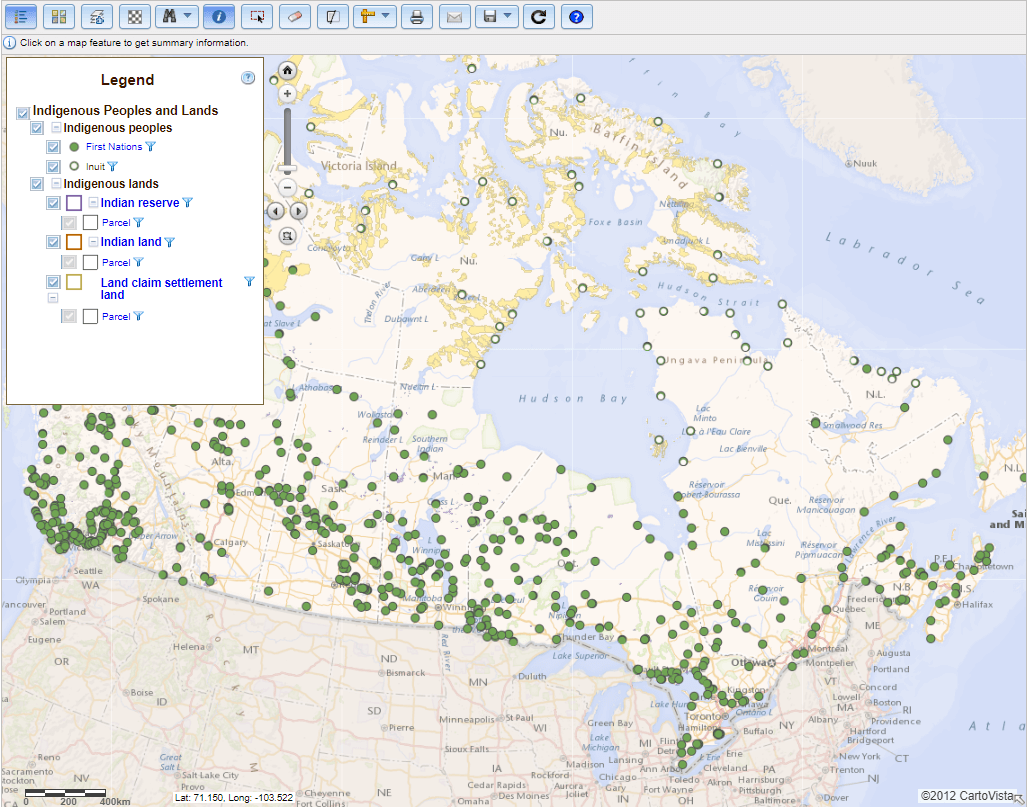Walk With Us
A Resource for Churches On the Crisis of Missing and Murdered
Indigenous Women and Girls
Indigenous women in Canada are 12 times more likely to be murdered or go missing than non-Indigenous women.
This shocking statistic is at the heart of an ongoing crisis in Canada – a crisis that many Canadians, including those in the church, need to become more informed about and engaged with.
This is what led Defend Dignity to develop Walk With Us, a comprehensive resource designed to help churches learn more about and engage with the crisis of Missing and Murdered Indigenous Women, Girls, and 2-Spirit People (MMIWG2S). Through our work on sexual exploitation issues we have seen that the dual crises of commercial sexual exploitation and MMIWG2S are closely connected. In fact, it is impossible to try to address one issue without quickly encountering the other.
As settler people in Canada, and particularly as the church, we need to first spend time learning before we can effectively act on this issue. We hope that by using these resources you will be informed and then inspired to do your part in the reconciling and healing work that must happen in order to stem the tide of violence, oppression and death among Indigenous women, girls and 2-Spirit people.
Empowered by the Spirit of Jesus, the church can be an instrument of healing and change.
Video Series
"Walk With Us: A Conversation" is a powerful 3-part video series accompanied by a small group discussion guide. Jump to the Video Series.
Annotated Bibliography
An extensive resource of recommended essays, books for adults and kids, podcasts, video and film clips, and more to help deepen your understanding of Indigenous peoples and Indigenous issues. Jump to the Annotated Bibliography.
Resource Maps
Allowing you to easily find regional resources and other information related to Indigenous Peoples in Canada and the crisis of MMIWG2S. Jump to the maps.
When to use this resource
Our suggestion is to build this into your church calendar to coincide with Red Dress Day on May 5. Alternatively, there are Sister in Spirit events which also honour MMIWG2S and take place in early October. Using the small group material around either of these dates would work well.
Walk With Us: A Conversation
Walk With Us: A Conversation is a short and inspiring round-table discussion that explores some of what's behind the MMIWG2S crisis, what families experience when searching for a missing loved one, and why churches need to engage with this issue.
This 3-part video series was designed with small groups in mind but will benefit anyone in the church wanting to learn more about MMIWG2S.
Churches can promote the series to their small groups by showing the 2-minute promo video at a service.
The PDF guide will help with your small group's discussion time.
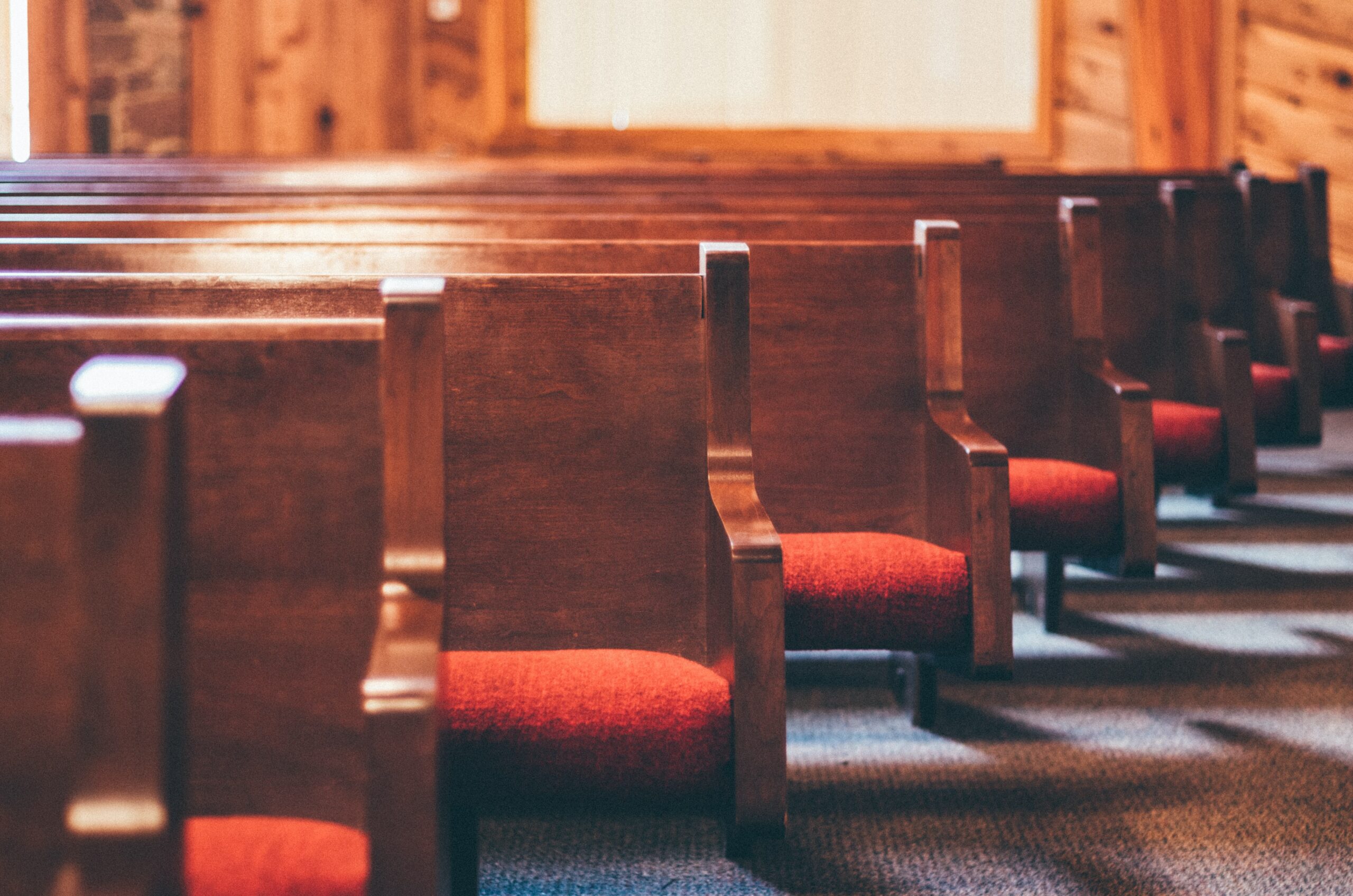
Sunday Service
Ways to promote this resource to your congregation:
- Show the "Walk With Us" promo video on the Sunday closest to Red Dress Day (May 5th)
- Invite church members and Small Groups to explore the full video series available on this webpage
- Include this slide in your Sunday morning powerpoint
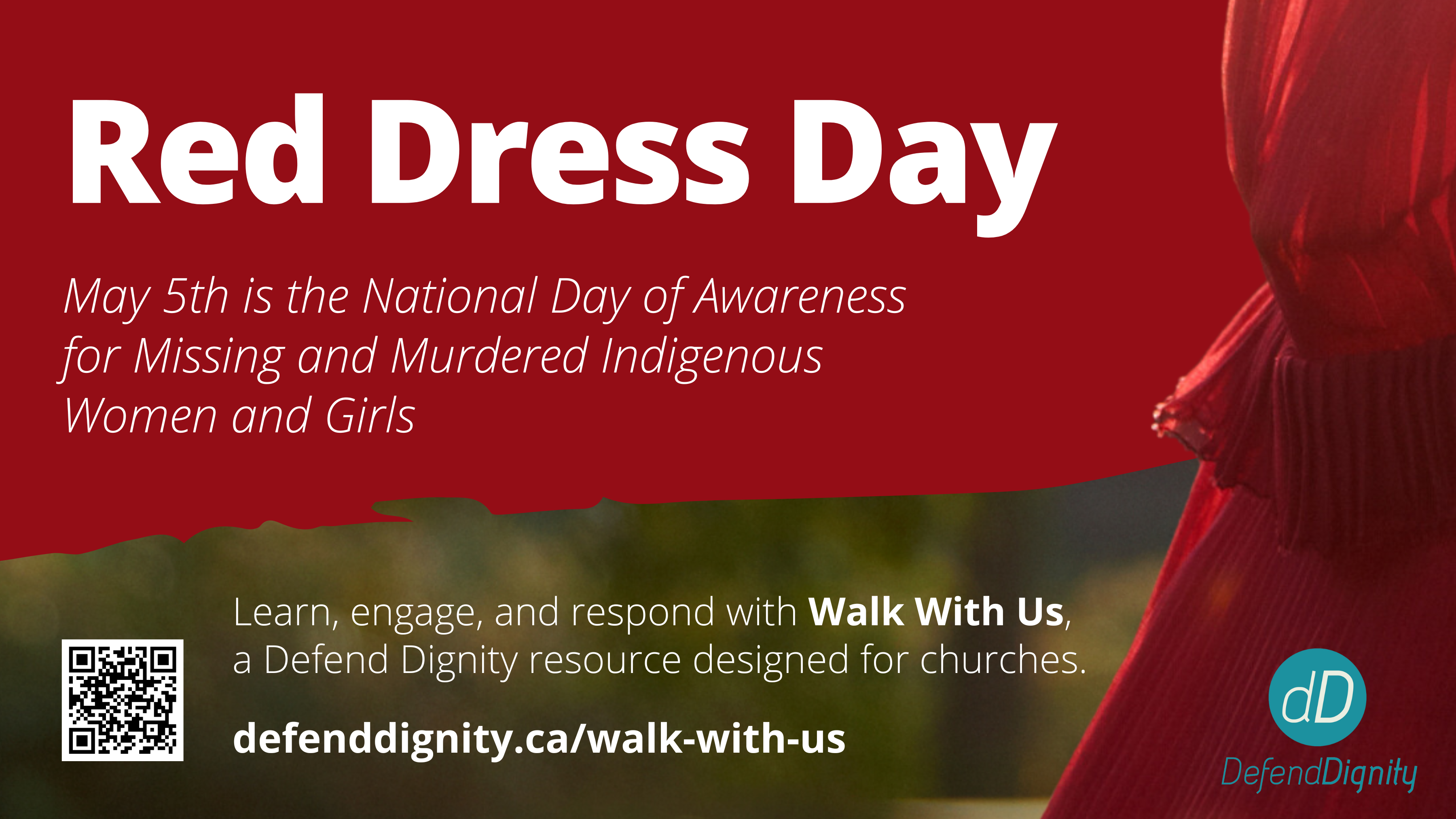
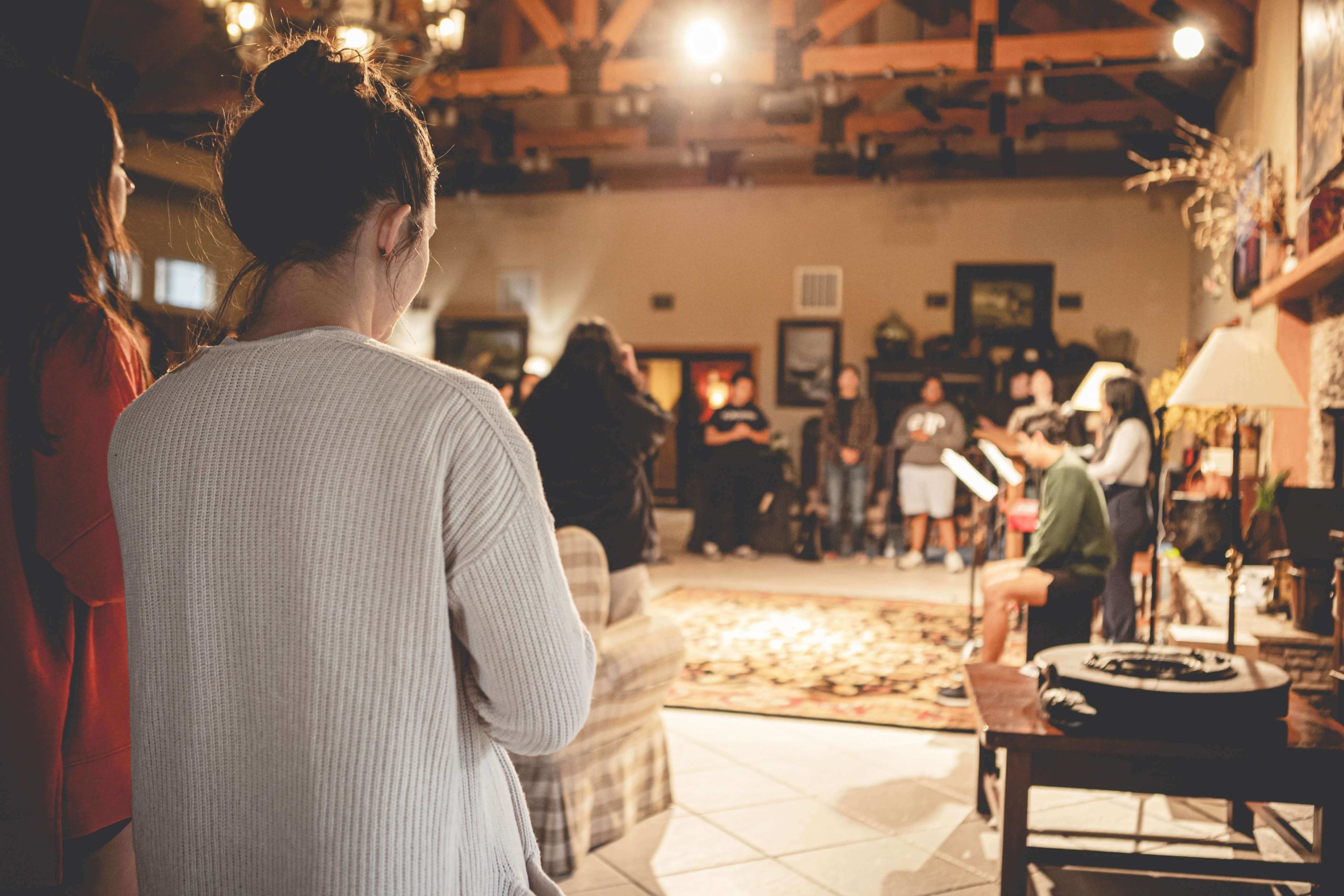
Small Groups
Learn more about MMIWG2S as a small group!
- Watch the full video series as a small group
- Follow along with the discussion guide to help guide your group's conversation
- Explore the annotated bibliography to find books, podcasts, film, music, and more than you can engage with as a group to keep the conversation going!
Discussion Guide
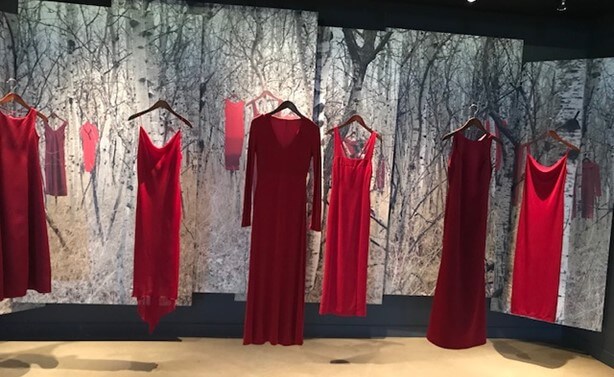
Red Dress Day | May 5th
May 5 marks the National Day of Awareness for Missing and Murdered Indigenous Women, Girls and Two-Spirit People (MMIWG2S+) in Canada — also known as Red Dress Day.
This day began as a response to and awareness of the alarmingly high numbers of missing and murdered Indigenous women and girls. The red dresses act as a visual reminder of all the missing women, girls, and two-spirit people.
You will also sometimes see a red shirt to honour those who identify as two-spirit. In June, 2019, a report was released on the National Inquiry for MMIWG2S — it includes well over 200 recommendations and concluded that the disappearance of these girls and women is an ongoing genocide, which continued after residential schools, the ’60s scoop and day schools.
This day is about recognizing the harm done to these women and girls as well as the sorrow and grief experienced by their families and communities.
Show Support
You can show your individual support by:
- Wearing red on May 5
- Posting to social media and using the hashtags #nomorestolensisters, #MMIWG2S, #whywewearred and #3reddressday
- Supporting any events or workshops that your communities or church may be holding and being an ally to your Indigenous neighbours
- Hanging a red dress or shirt outside your door or establishment
- Looking out for one another
Get Support
Get Help
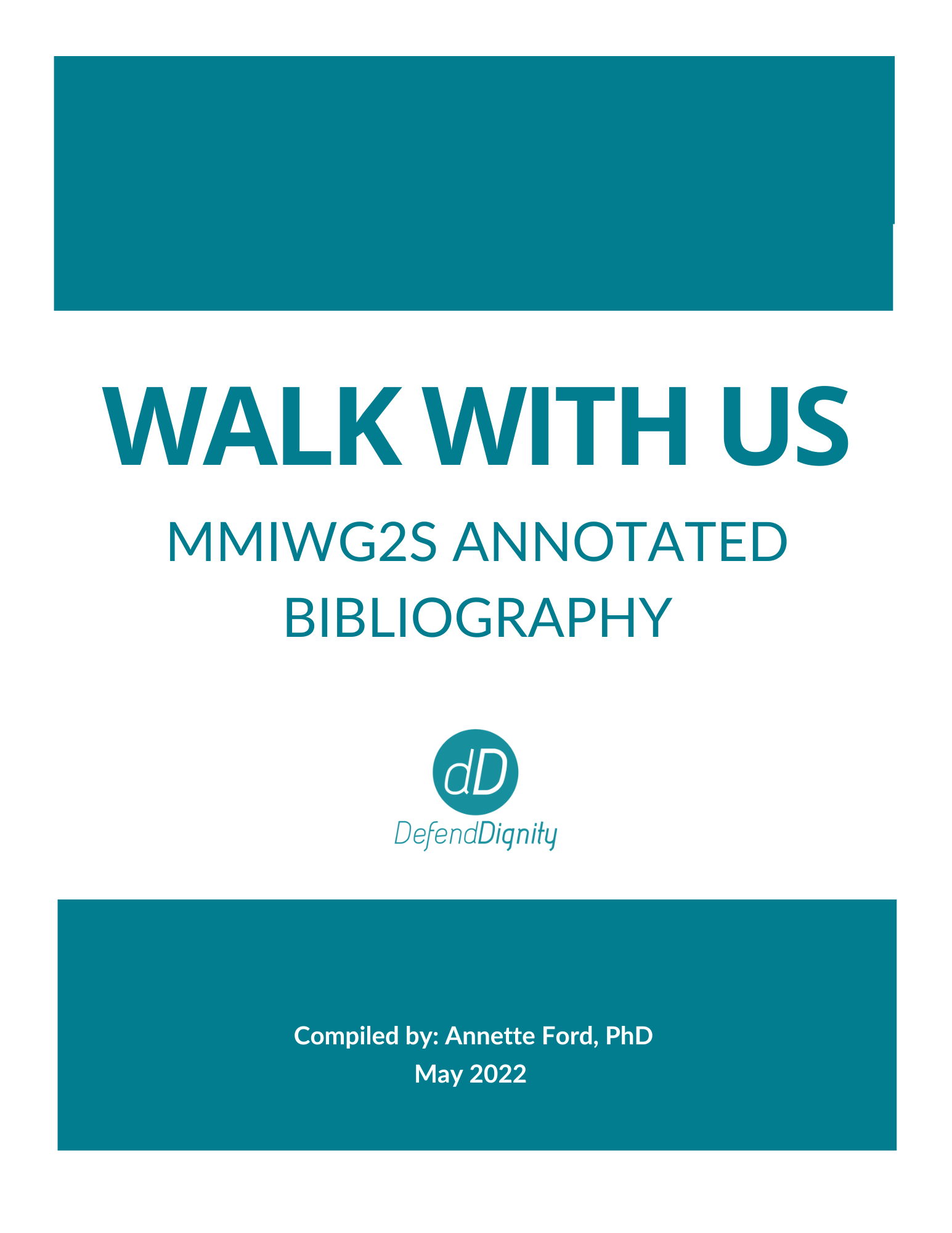
Annotated Bibliography
Download
Regional Resource Map
Aboriginal Affairs and Northern Development Canada’s (AANDC) GeoViewer
The Aboriginal Affairs and Northern Development Canada’s (AANDC) GeoViewer is a full-fledged map that contains detailed information on Indigenous peoples and Indigenous lands including Land Claim Settlement Land in Canada. This map provides viewing, searching, measuring, adding, sharing and printing of some departmental geographic data. Click on the image or on the links at the bottom of the page for detailed instructions for each map function The First Nations geographic location dataset contains the geographic location of First Nations (groups and subgroups) in Canada. The Aboriginal Lands of Canada Legislative Boundaries web service includes legislative boundaries of Indian Reserves, Land Claim Settlement Lands (lands created under Comprehensive Land Claims Process that do not or will not have Indian Reserve status under the Indian Act) and Indian Lands.
Click here for help document which provides an introduction to the components of the GeoViewer and how to use them.
View the Map
